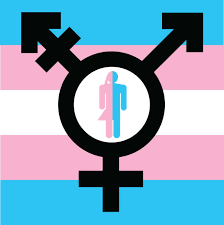When we think of hormones, we often focus on testosterone, particularly in the context of men’s health. However, estrogen, typically associated with women’s health, plays a crucial role in the male body as well. This article will explore average estrogen levels in men, their significance, and how various factors can influence hormonal balance. Understanding estrogen in men can help boost overall health and well-being, making it a topic worth diving into.
What Is Estrogen and Why Should Men Care About It?
Estrogen is a group of hormones that are primarily known for regulating female reproductive functions. However, men also produce estrogen, albeit in lower quantities. In men, estrogen is mainly produced in the testes and adrenal glands and plays vital roles in bone health, brain function, and the modulation of libido. Understanding why men should care about estrogen levels is essential; balanced estrogen contributes to overall physical and mental health, while imbalances can lead to various health issues.Forced Feminisation Pics
Men should pay attention to their estrogen levels because both low and high estrogen can lead to unwanted symptoms and health problems. Low estrogen levels can impact bone density and mood, while elevated estrogen levels may result in increased body fat, gynecomastia (development of breast tissue), and even issues with fertility. Recognizing the importance of estrogen is the first step in maintaining hormonal health.
The Surprising Role of Estrogen in the Male Body
Estrogen might not be the first hormone that comes to mind when discussing men’s health, but it plays several critical roles in the male body. For starters, it is essential for maintaining bone density. Men with adequate estrogen levels are less likely to experience osteoporosis and fractures as they age. Estrogen also has a hand in regulating cholesterol levels, promoting cardiovascular health, and supporting a healthy metabolism.
Beyond physical health, estrogen is also crucial for mental well-being. Research suggests that estrogen impacts mood and cognitive function in men. Low levels of estrogen have been linked to increased anxiety, depression, and even memory issues. Thus, ensuring that estrogen levels are balanced is vital for both physical and mental health in men.
Average Estrogen Levels: How Much Is Normal for Men?
The average estrogen levels in men can vary significantly based on factors such as age, health, and individual physiology. Typically, normal estradiol levels (the primary form of estrogen) for adult men range from about 10 to 40 picograms per milliliter (pg/mL). However, these values can fluctuate, and what’s considered “normal” may differ from one lab to another.
It’s important to note that estrogen levels naturally decline with age, similar to testosterone. Men in their 30s may have higher levels than older men. Moreover, lifestyle factors can also affect these levels, so it’s essential to monitor changes and consult healthcare professionals if you suspect an imbalance.
Factors That Influence Estrogen Levels in Men
Several factors can influence estrogen levels in men, ranging from lifestyle choices to underlying medical conditions. One of the primary contributors is body weight; excess body fat can lead to increased estrogen production since fatty tissue converts androgens (like testosterone) into estrogen. Therefore, maintaining a healthy weight is crucial for hormonal balance.
Another factor is age, as mentioned earlier. As men age, testosterone levels decline, which can lead to a relative increase in estrogen. Furthermore, certain medications and health conditions, such as liver dysfunction or hormonal disorders, can also impact estrogen levels. Understanding these factors can help men take proactive steps in managing their hormonal health.
Symptoms of Low or High Estrogen: What to Look For
Recognizing the symptoms of low or high estrogen is key to maintaining balance. Low estrogen levels in men can manifest as fatigue, decreased libido, mood swings, and even osteoporosis. If you find yourself feeling unusually lethargic or notice changes in your mood or sexual interest, it might be worth considering your estrogen levels.
On the flip side, high estrogen levels can lead to symptoms such as increased body fat, gynecomastia, and emotional instability. Men may also experience issues with fertility and libido. If you notice physical changes or health concerns, understanding the symptoms associated with estrogen imbalances can be an important first step in seeking help.
Testing Your Estrogen: When and How to Do It
If you suspect that your estrogen levels might be off, the first step is to consult with a healthcare provider. They can recommend hormonal testing to measure your estradiol levels. This typically involves a simple blood test, which can reveal valuable information about your hormonal balance.
Testing is especially important if you’re experiencing symptoms related to hormonal imbalances, or if you have risk factors that could influence your estrogen levels, such as obesity or certain medical conditions. Regular check-ups can help catch any potential issues early and allow for timely intervention.
Effects of Lifestyle on Estrogen Levels in Men
Lifestyle choices significantly impact estrogen levels in men. Factors such as diet, exercise, and alcohol consumption can contribute to hormonal balance. For example, a diet high in processed foods and sugars can lead to weight gain, which in turn can increase estrogen levels due to fat tissue conversion of testosterone. On the other hand, a diet rich in whole foods, healthy fats, and fiber can support hormonal balance.
Physical activity is another crucial element. Regular exercise, particularly strength training, can boost testosterone levels and help regulate estrogen. Conversely, a sedentary lifestyle may contribute to higher estrogen levels. Additionally, excessive alcohol intake has been linked to increased estrogen levels and negative impacts on liver health, which is vital for hormone metabolism.
Tips for Maintaining Healthy Estrogen Levels Naturally
Maintaining healthy estrogen levels requires a multifaceted approach. Start by focusing on weight management; keeping a healthy weight can help regulate estrogen production. Incorporating a balanced diet that emphasizes whole foods, lean proteins, and healthy fats can provide nutrients that support hormonal health.
Consider making time for regular exercise—both aerobic and strength training—can be beneficial. Moreover, reducing alcohol consumption and managing stress through mindfulness practices such as yoga or meditation can also help maintain hormonal balance. Lastly, staying hydrated and getting adequate sleep contributes significantly to overall health and hormonal regulation.
Understanding average estrogen levels in men is crucial for overall health and well-being. By recognizing the role of estrogen, monitoring levels, and making lifestyle changes where necessary, men can maintain a healthy hormonal balance. If you suspect any issues related to estrogen levels, don’t hesitate to reach out to a healthcare professional for guidance and support. Balancing hormones is key to feeling your best!


